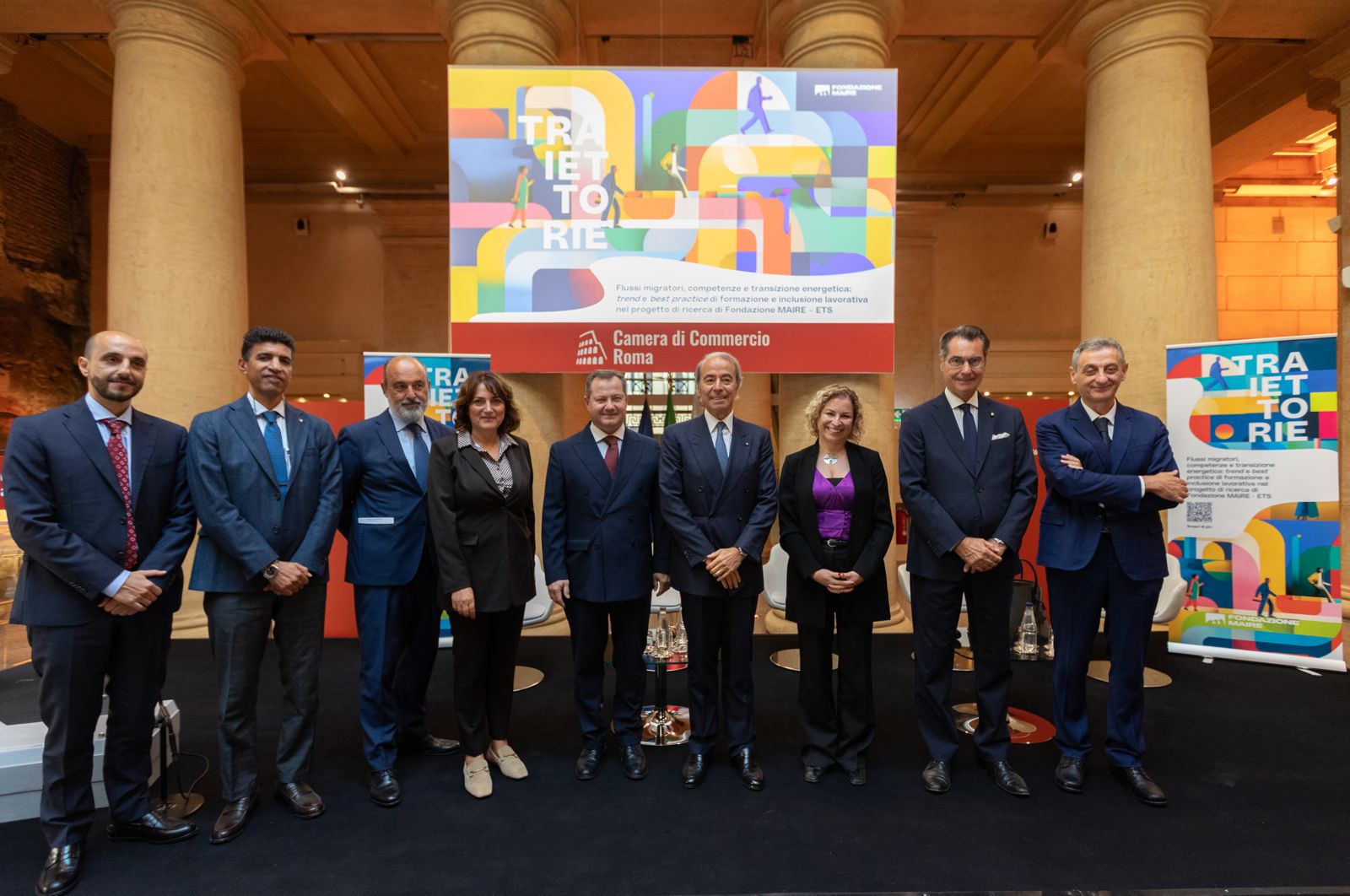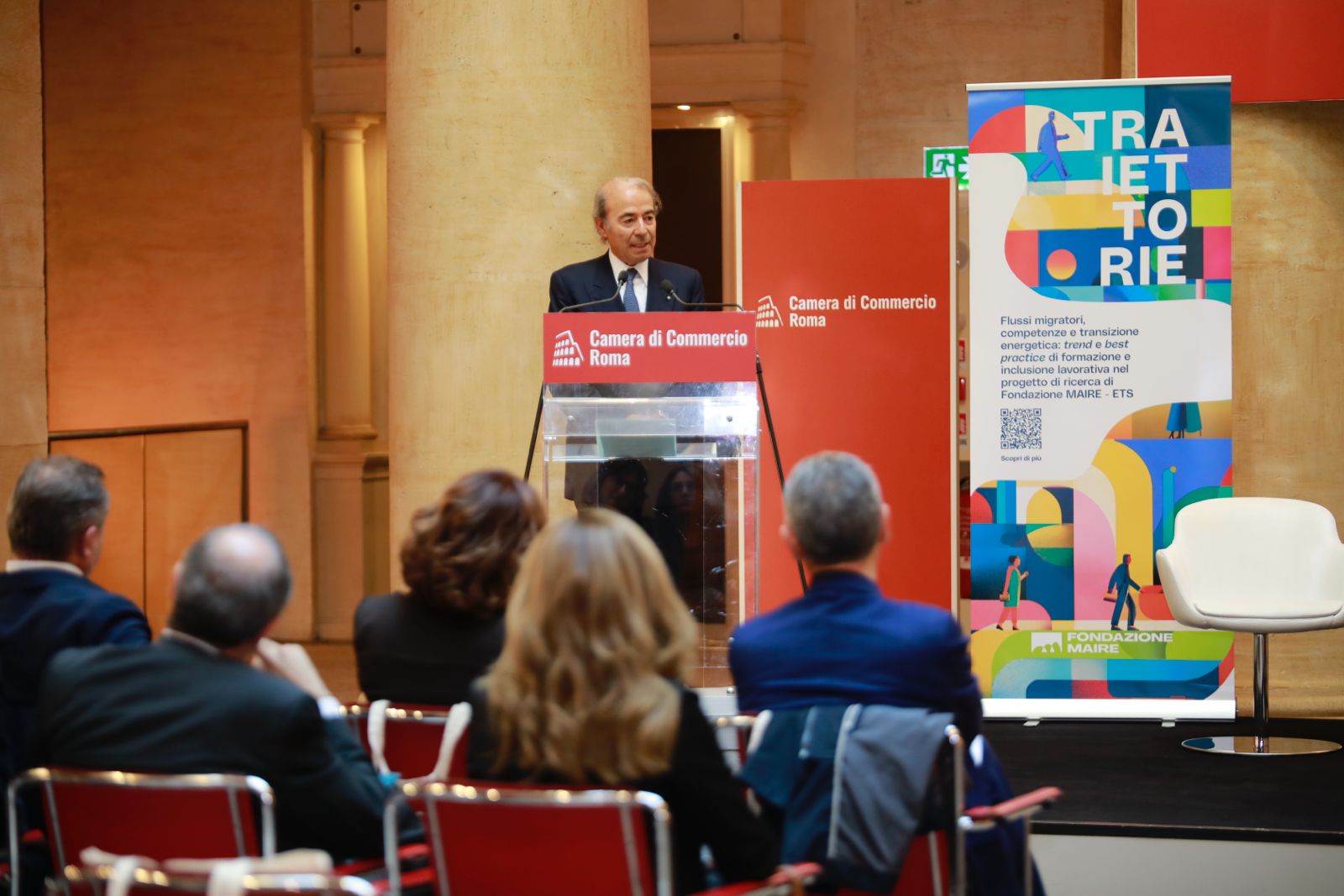Economic and employment opportunties for migrants and the energy transition: a MAIRE foundation-ETS study
PRESS RELEASE- The energy transition offers opportunities to integrate foreign workers: from language and technical training programs to mentorship and upskilling programs in agrivoltaics and green industrial districts
- The inclusion of immigrants in the energy transition and circular economy sectors is a lever for the growth of communities and new supply chains
Rome, October 13, 2025 – The MAIRE – ETS Foundation today unveiled a new study called “TRAJECTORIES – Migration flows, skills, and energy transition: trends and best practices in training and labor inclusion,” focusing on the role immigrants can play in the energy transition.
The study, divided into eight sections, was funded by a call for proposals from the MAIRE-ETS Foundation. It highlights how immigrants can play a role in the energy transition and circular economy sectors, and be a fundamental lever for achieving climate goals and for the growth of the sector, communities, and new supply chains.
Foreign workers already accounted for over a fifth of those employed in green jobs in Italy, according to Eurostat and other sources. (1) However, this workforce is highly segmented: Italian workers occupy the most specialized positions, while non-EU workers are often engaged in basic tasks. This gap is due to the difficulty of recognizing the qualifications acquired abroad, language and cultural barriers, and the lack of targeted training courses.
Forecasts suggest that reaching climate neutrality in Europe by 2050 may create 2.5 million jobs [2] and that by 2030, climate adaptation and mitigation together could create 8 million new jobs worldwide [3]. At the same time, in Italy, the estimated gap of workers needed to fill green jobs is over 800,000 [4]. To meet this challenge, Italy needs training and work inclusion projects targeted at the immigrant population that are designed to reduce the time required to recognize their qualifications, and to target up- and re-skilling. Pathways to social and cultural integration must be established, along with a framework for mapping green skills.
The MAIRE Foundation-ETS study highlights the importance of integrated training programs that combine technical, linguistic, and digital skills, where participants are accompanied by tutors and mentors. Pilot projects in several European countries show that skilled immigrants can adapt quickly, bringing tangible benefits to companies and enriching teams culturally. Projects establishing employment corridors based on labor market needs, with pre-training in the country of origin, are proving to be valid and show potential.
Two areas were analyzed vertically: agrivoltaics -- an emerging sector that combines agriculture and photovoltaics and requires a diverse and skilled workforce -- and industrial districts. In agrivoltaics, immigrants can be trained in new technologies given they frequently already possess agricultural skills, thereby improving their integration. In industrial districts undergoing conversion to green and circular business models where the presence of foreign workers is intertwined with environmental sustainability, communities can become testing grounds for social and economic innovation.
The studies were carried out by five researchers—Cecilia Fortunato, Antonio Umberto Mosetti, Luigi Campaniello, Carla Ventre, and Angelique Witjes—coordinated by Prof. Andrea Billi of the University of Rome, and by three associations—Talent Beyond Boundaries, NeXt, Nuova Economia per tutti, and Fondazione AVSI-ETS.
The research was presented at the Rome Chamber of Commerce, attended by Italy’s Interior Minister Matteo Piantedosi; Ilaria Catastini, Director General of the MAIRE-ETS Foundation; Andrea Billi, Professor at Sapienza University of Rome; Chiara Cardoletti, UNHCR Representative for Italy, the Holy See, and San Marino; Fabrizio Gallo, President of the National Commission for the Right of Asylum; Massimiliano Musmeci, Senior Expert at ANCE; Mohammed Saady, National Secretary of Fai Cisl, expert in migration policies; Salvatore Sortino, Director of the Coordination Office for the Mediterranean, International Organization for Migration (IOM).
Fabrizio Di Amato, President of the Foundation and the MAIRE group, wrapped up the event by saying: "The business world is experiencing a particular shortage of certain professional skills. The energy transition sector needs trained people now and increasingly in the future: migrants and refugees can be a precious resource, especially if they are included in specific job corridor programs. Companies need to invest in targeted training and inclusion projects that involve their stakeholders as part of their sustainability strategies, and they need support to do this. We have launched, as a Group, a program that provides for the entry of 100 new professionals each year, attracted and trained through our network of competence centers, among whom we plan to train a share of migrants and refugees as well. I propose to establish an implementation working group with institutional and associative stakeholders willing to support us in this journey. I propose setting up an implementation committee with institutions and civic groups willing to help us on this journey."


[1] EU Labor Force reports, Eurostat; XIV MLPS Report “Foreigners in the Italian labor market, 2024” and GreenItaly by Symbola, 2024; study by L. Campaniello
[2] Source: CEDEFOP, 2021; in research by A.U. Mosetti
[3] World Economic Forum, Future of Jobs report, 2025
[4] Source: Confartigianato study, presented at Energies